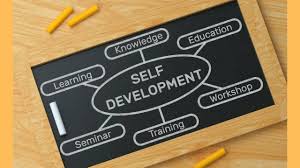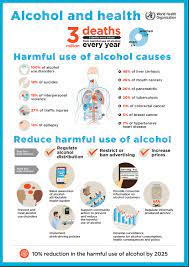The Power of Self-Development: Investing in Your Growth
Self-development is a lifelong journey of personal growth, self-improvement, and self-awareness. It is the conscious effort to enhance one’s skills, knowledge, talents, and overall well-being. Investing in self-development is one of the most valuable investments you can make in yourself.
Self-development empowers you to take control of your life and shape your future. By setting goals, seeking new experiences, and learning from challenges, you can unlock your full potential and become the best version of yourself.
One key aspect of self-development is continuous learning. Whether through formal education, reading books, attending workshops, or seeking mentorship, learning new things expands your perspective and opens doors to new opportunities.
Self-reflection is another important component of self-development. Taking the time to reflect on your thoughts, emotions, and actions allows you to gain insights into your strengths and areas for improvement. It enables you to make better decisions and grow from past experiences.
Building resilience is also crucial in self-development. Life is full of ups and downs, but developing resilience helps you bounce back from setbacks stronger than before. By cultivating a positive mindset and adapting to change, you can navigate challenges with confidence and perseverance.
Self-development also involves taking care of your physical and mental well-being. Prioritizing self-care practices such as exercise, proper nutrition, mindfulness meditation, and adequate sleep contributes to your overall health and vitality.
In conclusion, self-development is a transformative journey that empowers you to reach your full potential and live a fulfilling life. By investing in your growth through continuous learning, self-reflection, resilience-building, and well-being practices, you can create a brighter future for yourself.
7 Key Benefits of Self-Development: Empower Your Life and Future
- 1. Empowers you to take control of your life and shape your future.
- 2. Enhances your skills, knowledge, and talents for personal growth.
- 3. Boosts self-confidence and self-awareness through continuous improvement.
- 4. Opens doors to new opportunities and expands your perspective.
- 5. Helps you make better decisions by reflecting on past experiences.
- 6. Builds resilience to bounce back stronger from setbacks and challenges.
- 7. Promotes physical and mental well-being through self-care practices.
The Challenges and Drawbacks of Self-Development: 7 Key Cons to Consider
- Self-development requires consistent effort and dedication, which can be challenging to maintain.
- It may lead to feelings of overwhelm or pressure to constantly improve oneself.
- Some self-development practices or techniques may not work effectively for everyone, leading to frustration.
- Investing in self-development can be costly, especially when attending workshops or hiring coaches.
- Self-development may create a sense of comparison with others, fostering feelings of inadequacy or jealousy.
- It can be time-consuming to engage in self-improvement activities while juggling other responsibilities and commitments.
- There is a risk of becoming too focused on personal growth and neglecting other important aspects of life such as relationships or leisure.
1. Empowers you to take control of your life and shape your future.
Self-development empowers individuals to take control of their lives and proactively shape their futures. By investing in personal growth and self-improvement, individuals gain the tools, skills, and mindset needed to steer their lives in the direction they desire. This proactively approach allows them to set meaningful goals, make informed decisions, and take intentional actions that align with their values and aspirations. Through self-development, individuals become architects of their own destinies, creating a path towards a more fulfilling and purposeful life.
2. Enhances your skills, knowledge, and talents for personal growth.
Self-development offers the invaluable benefit of enhancing your skills, knowledge, and talents, paving the way for personal growth and advancement. By actively engaging in self-improvement efforts, such as learning new skills, acquiring knowledge through education or experience, and honing your natural talents, you not only expand your capabilities but also unlock new opportunities for self-discovery and achievement. This continuous process of skill development and knowledge enhancement empowers you to navigate challenges with confidence, adapt to changing circumstances, and ultimately realize your full potential in both personal and professional realms.
3. Boosts self-confidence and self-awareness through continuous improvement.
Continuous self-development boosts self-confidence and self-awareness by fostering a mindset of growth and improvement. As individuals engage in activities that challenge them to learn new skills, overcome obstacles, and push beyond their comfort zones, they gain a deeper understanding of their capabilities and potential. This process of continuous improvement not only enhances self-confidence by demonstrating personal growth but also increases self-awareness by highlighting strengths, weaknesses, and areas for development. Through the journey of self-development, individuals cultivate a strong sense of self-belief and a heightened awareness of who they are and what they are capable of achieving.
4. Opens doors to new opportunities and expands your perspective.
Self-development has the remarkable ability to open doors to new opportunities and expand your perspective. By actively engaging in self-improvement practices, you not only enhance your existing skills and knowledge but also discover new pathways and possibilities that were previously unseen. Embracing self-development allows you to step out of your comfort zone, explore different perspectives, and seize opportunities for personal and professional growth that may have otherwise remained out of reach. This continuous expansion of your horizons enriches your life experiences and empowers you to approach challenges with a fresh outlook and a sense of readiness for whatever the future may hold.
5. Helps you make better decisions by reflecting on past experiences.
Self-development, particularly the practice of reflecting on past experiences, serves as a valuable tool in enhancing decision-making skills. By taking the time to analyze and learn from previous situations, individuals can gain valuable insights into what worked well and what could have been improved. This reflective process enables them to make more informed decisions in the future, drawing upon their accumulated wisdom and knowledge to navigate challenges with greater clarity and confidence.
6. Builds resilience to bounce back stronger from setbacks and challenges.
Self-development plays a crucial role in building resilience, equipping individuals with the strength and mindset to bounce back stronger from setbacks and challenges. By actively engaging in self-improvement practices, individuals learn to adapt to adversity, cultivate a positive outlook, and develop coping strategies that enable them to overcome obstacles with greater resilience and determination. This ability to bounce back from setbacks not only fosters personal growth but also empowers individuals to face future challenges with confidence and perseverance.
7. Promotes physical and mental well-being through self-care practices.
Promoting physical and mental well-being through self-care practices is a key benefit of self-development. By prioritizing activities such as exercise, proper nutrition, mindfulness meditation, and adequate sleep, individuals can enhance their overall health and vitality. These self-care practices not only improve physical fitness but also contribute to mental clarity, emotional resilience, and stress reduction. Taking care of oneself is essential for maintaining a balanced and fulfilling life, and self-development encourages individuals to prioritize their well-being as a fundamental aspect of personal growth.
Self-development requires consistent effort and dedication, which can be challenging to maintain.
Embarking on a journey of self-development demands unwavering commitment and dedication, a task that can prove to be quite challenging to sustain. The consistent effort required to prioritize personal growth amidst the demands of daily life can be daunting. Balancing work, relationships, and other responsibilities while investing time and energy into self-improvement calls for a high level of discipline and perseverance. It’s easy to become overwhelmed or discouraged when faced with setbacks or slow progress along the path of self-development. However, acknowledging this con can also serve as a reminder of the importance of self-compassion and patience in navigating the ups and downs of the self-improvement journey.
It may lead to feelings of overwhelm or pressure to constantly improve oneself.
Engaging in self-development may inadvertently lead to feelings of overwhelm or the pressure to constantly improve oneself. The desire for personal growth and self-improvement can sometimes create unrealistic expectations or a sense of never being “good enough.” This pressure to continuously strive for perfection can be exhausting and counterproductive, potentially leading to burnout or feelings of inadequacy. It’s important to strike a balance between pursuing self-development goals and practicing self-compassion, allowing oneself the space to embrace imperfection and appreciate personal progress without undue stress or self-criticism.
Some self-development practices or techniques may not work effectively for everyone, leading to frustration.
Some self-development practices or techniques may not work effectively for everyone, leading to frustration. What works well for one individual may not yield the same results for another due to differences in personality, learning styles, and life experiences. This discrepancy can create feelings of disappointment and discouragement, especially when individuals invest time and effort into a self-development method that does not resonate with them. It is important to recognize that self-development is a highly personalized journey, and what works for one person may not necessarily work for another. Embracing this diversity in approaches can help individuals navigate through setbacks and explore alternative methods that better suit their needs and preferences.
Investing in self-development can be costly, especially when attending workshops or hiring coaches.
Investing in self-development can come with a significant financial burden, particularly when it involves attending workshops or hiring coaches. The costs associated with professional development programs, seminars, or one-on-one coaching sessions can add up quickly, making it inaccessible to individuals with limited financial resources. This financial barrier can prevent some people from pursuing opportunities for personal growth and skill enhancement, ultimately limiting their ability to reach their full potential. Despite the valuable benefits of self-development, the high costs involved can be a major con for many individuals seeking to invest in their personal and professional growth.
Self-development may create a sense of comparison with others, fostering feelings of inadequacy or jealousy.
Engaging in self-development may inadvertently lead to a detrimental habit of comparing oneself to others, triggering feelings of inadequacy or jealousy. When individuals focus too much on their personal growth journey in relation to others, they may fall into the trap of measuring their worth based on external benchmarks. This constant comparison can erode self-confidence and breed negative emotions, hindering genuine progress and self-acceptance. It is essential to remember that each person’s path to self-improvement is unique, and true fulfillment comes from embracing one’s individual strengths and progress without being overshadowed by comparisons with others.
It can be time-consuming to engage in self-improvement activities while juggling other responsibilities and commitments.
Engaging in self-improvement activities can be a challenging endeavor, especially when balancing multiple responsibilities and commitments. The time and effort required for self-development can often feel overwhelming amidst the demands of work, family, and other obligations. Finding the right balance between personal growth and daily tasks can be a struggle, leading to feelings of frustration and fatigue. Prioritizing self-improvement in a busy schedule requires careful planning and dedication, as it may involve sacrificing leisure time or adjusting existing routines to make room for development activities.
There is a risk of becoming too focused on personal growth and neglecting other important aspects of life such as relationships or leisure.
One potential drawback of self-development is the risk of becoming overly fixated on personal growth to the detriment of other essential aspects of life. When individuals become too consumed with self-improvement, they may inadvertently neglect nurturing relationships with loved ones or engaging in leisure activities that bring joy and balance to their lives. This imbalance can lead to feelings of isolation, burnout, and a lack of fulfillment in areas beyond personal development. It’s important to strike a healthy balance between self-improvement and maintaining meaningful connections with others and taking time for relaxation and enjoyment.




